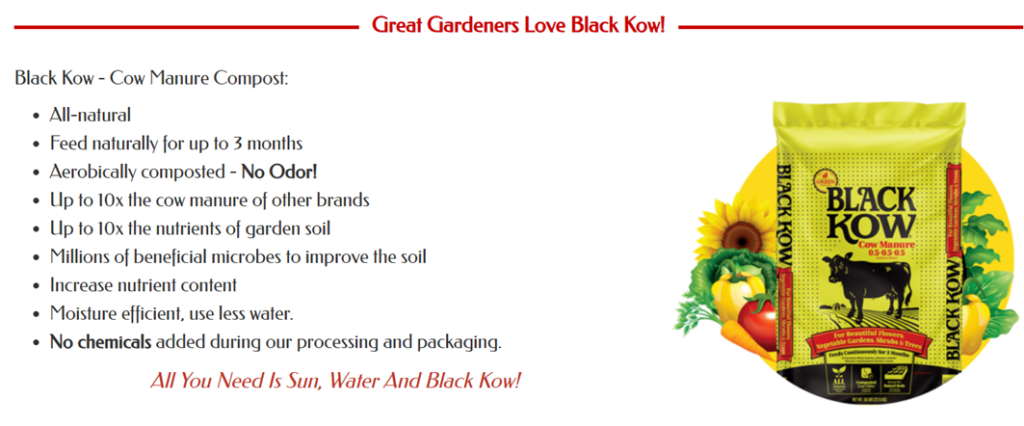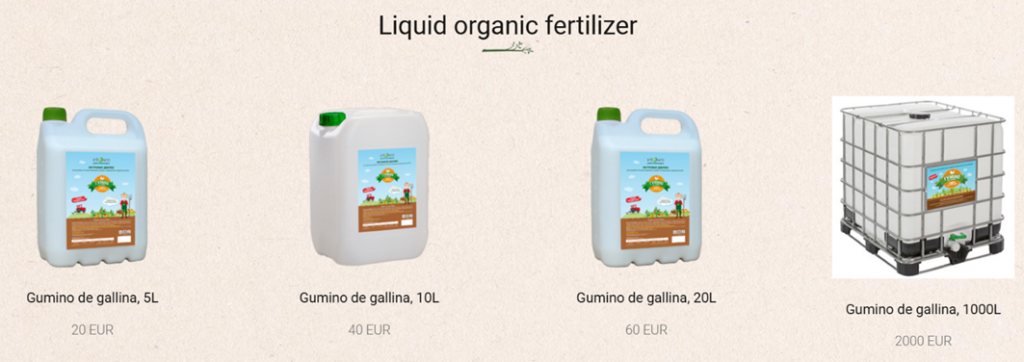With the agricultural sector at a crossroads, the need for sustainable, high-performing fertilisers has never been greater. Traditional fertilisers may boost yields in the short-medium term, but they come with soil health downsides that compromise the yield in the long run- soil degradation, nutrient runoff – and environmental impacts like high carbon footprints. The good news? Innovative solutions are emerging that turn waste into opportunity. From biowaste-derived biochar improving soil health to feather meal delivering slow-release nitrogen, the future of farming is being rewritten—one sustainable product at a time.
For those looking to transition to organic or eco- and soil-friendly fertilisers, these examples showcase real-world success stories of products already available for selling that are leading the way toward the market uptake of circular fertilisers.
Composted Animal Manure: Eco-Friendly Fertilisation
Composted animal manure, when properly processed and branded, is a natural powerhouse for soil enrichment. Black Kow composted cow manure, produced by Black Compost Company (Oxford, FL), is a perfect example of how a simple, sustainable input can be turned into a premium organic product.
- Odor-free & rich in nutrients
- Improves soil health with beneficial microbes
- Enhances water retention, reducing irrigation needs
Black Kow’s success lies in its ability to meet eco-conscious consumer demands while maintaining affordability and scalability. Similarly, Integro, a Ukrainian company specializing in organic fertilisers, transforms chicken manure into high-quality organic fertilisers, offering them in various sizes- from small gardener-friendly packages to large bulk solutions for commercial farms.


Bio-Waste to Biochar: A Versatile Eco-Product
Biochar is rapidly gaining recognition for its ability to enhance soil fertility, retain moisture, and improve nutrient absorption. Created from biowaste, it is an excellent alternative to chemical soil amendments.
Companies like CarbonBox have developed biochar-based solutions tailored to both agriculture and industrial applications, proving that biochar is not just a soil amendment but a multi-use environmental solution.
- Improves soil porosity & structure
- Reduces nutrient leaching & increases water retention
- Stores carbon, reducing greenhouse gas emissions

Digestate: Creating Blended Fertilisers
The solid fraction of digestate, a byproduct of anaerobic digestion, is gaining traction as a valuable component in blended fertilisers. By combining digestate with other organic or inorganic materials, balanced and versatile fertiliser solutions can be created for specific crop needs.
A great example is Apsley Farms, a family-run business in England, which has developed custom digestate-based fertilisers suited for tomatoes, vegetables, fruits, and flowering plants.
- Eco-friendly alternative to chemical fertilisers
- Supports organic and regenerative farming
- Tailored nutrient release for different crops

Feather Meal: An Unlikely Fertiliser Hero

Feather meal, a byproduct of the poultry industry, is proving to be a game-changer in organic farming. Its slow-release nitrogen makes it perfect for nitrogen-hungry crops, ensuring steady, long-term soil enrichment without the rapid depletion associated with synthetic fertilisers.
A prime example is DTE Feather Meal 12-0-0, which is certified by the Organic Materials Review Institute (OMRI). This certification ensures compliance with strict organic farming standards, making it a trusted choice for sustainable agriculture.
- Ideal for crops like corn & leafy greens
- Slow-release formula for consistent plant nutrition
- Supports long-term soil health & organic farming goals
The Future of Sustainable Farming
These fertilisers aren’t just alternatives – they’re the future of farming. By turning waste into valuable resources, they show that sustainability and productivity can go hand in hand. Farmers, policymakers, and consumers alike have a unique opportunity to embrace these eco-friendly solutions, ensuring better yields without harming the planet.
Be part of the transition – switch to circular fertilisers and foster their market uptake!

